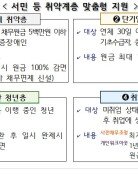Former ECB chief urges EU to increase annual investment by €800 billion
Former ECB chief urges EU to increase annual investment by €800 billion
Posted September. 11, 2024 07:34,
Updated September. 11, 2024 07:34

Mario Draghi, former President of the European Central Bank (ECB), said on Monday that the overall competitiveness of the European Union (EU) is at 'existential risk' and called for stimulus measures, including annual investment of 800 billion euros (approximately 1,200 trillion won). He warned that the speed of development of high-tech industries such as artificial intelligence (AI) and semiconductors is lagging the United States and China, pointing out that the EU’s complex decision-making structure weighs down development. He warned that Europe would fall behind for good unless action is taken.
Draghi presented the ‘Future of EU Competitiveness’ report on Monday in Brussels, Belgium, headquarters of the EU. The investment of 800 billion euros that he proposed is about 4.7% of the EU's gross domestic product (GDP). The figure is significant, considering that the scale of the Marshall Plan, an economic revival plan proposed by the United States to Europe in 1948 right after World War II, was about 1-2% of EU GDP at the time. The report was prepared at the request of European Commission President Ursula von der Leyen, who was recently re-elected and will begin her new five-year term in November.
Draghi pointed out that no European company with a value of more than 100 billion euros has emerged in the past 50 years and that 30% of European unicorn companies (a startup company with a corporate value of more than a billion dollars are not listed) left Europe after the 2008 global financial crisis. While Europe’s number of innovative companies, the market capitalization of major listed companies, and the size of the capital market have already become incomparable to those of the United States, the United States continues to move ahead by actively attracting investment from foreign companies by successively introducing the ‘Inflation Reduction Act (IRA)’ and the CHIPS Act.
He urged that a ‘pan-European semiconductor strategy’ is urgent, emphasizing that the entire EU, not just individual member states, must strengthen semiconductor investment and collaborate to defend themselves from semiconductor export regulations from countries including the United States.
During his term as finance minister in his native Italy, Draghi was called ‘Super Mario’ for reducing chronic fiscal deficits through strong restructuring measures, cutting down government spending and privatizing public enterprises. He is also acknowledged for having successfully resolved the economic crisis in Southern Europe after taking office as president of the ECB.
이지윤 asap@donga.com






